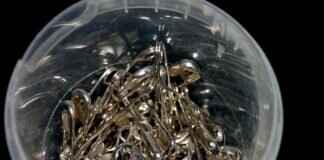The 2015 Honda Civic EX stands out in the compact car segment not only for its performance but also for its timeless design elements and advanced technology. This vehicle combines style, comfort, and efficiency, making it a popular choice among drivers.
Exterior Design Features
The exterior of the 2015 Honda Civic EX showcases a sleek and modern design. Its aerodynamic shape not only enhances its aesthetic appeal but also improves fuel efficiency. The bold front grille and stylish headlights give it a distinctive look that attracts attention on the road.
Interior Comfort and Space
Inside the Civic EX, the focus is on creating a comfortable and spacious environment. The cabin features high-quality materials and a thoughtful layout, ensuring that both drivers and passengers enjoy their journey.
- Seating and Materials: The Civic EX provides supportive seats with premium upholstery, ensuring comfort during long drives.
- Front and Rear Seating: Ample legroom in the front and rear seats accommodates passengers comfortably, making it ideal for families.
Interior Technology
The 2015 Honda Civic EX is equipped with a suite of advanced technology features. The infotainment system includes a touchscreen interface, smartphone integration, and Bluetooth connectivity, catering to the needs of modern drivers.
Storage Solutions
With a variety of storage compartments and a spacious trunk, the Civic EX effectively addresses the practical needs of everyday life. Whether it’s groceries or luggage, there’s ample space to accommodate your belongings.
Engine Performance and Efficiency
The engine of the 2015 Honda Civic EX strikes a perfect balance between performance and fuel efficiency. It delivers a responsive driving experience while keeping operating costs low.
- Engine Specifications: The robust engine provides impressive horsepower and torque, ensuring a dynamic drive.
- Fuel Economy Ratings: The Civic EX achieves excellent fuel economy, making it a smart choice for eco-conscious drivers.
Safety Features and Ratings
Safety is a top priority in the 2015 Honda Civic EX. Equipped with a range of advanced safety features, it ensures the protection of all occupants.
- Standard Safety Equipment: Features include multiple airbags, anti-lock brakes, and stability control.
- Crash Test Ratings: The Civic EX has received high ratings in independent crash tests, highlighting its commitment to safety.
Driving Experience and Handling
The driving experience in the 2015 Honda Civic EX is characterized by responsive handling and a smooth ride. It is designed for both city driving and highway cruising.
- Steering and Suspension: The steering system allows for precise maneuverability, contributing to an enjoyable driving experience.
- Noise and Vibration Control: Enhanced measures ensure a quiet cabin, further elevating comfort during drives.

Exterior Design Features
The 2015 Honda Civic EX stands out in the compact car segment not only for its performance but also for its striking exterior design. The vehicle’s silhouette is a harmonious blend of aerodynamics and modern aesthetics, appealing to a diverse range of drivers. This model features a sleek profile that enhances its overall visual appeal while contributing to improved fuel efficiency.
One of the most notable aspects of the Civic EX’s exterior is its bold front fascia. The distinctive grille design and sharp headlights create a commanding presence on the road. The integration of LED daytime running lights not only enhances visibility but also adds a touch of sophistication. The streamlined body contours reduce drag, allowing for smoother airflow and better performance.
The rear of the 2015 Civic EX is equally impressive, featuring a sporty trunk lid that seamlessly integrates with the overall design. The taillights, characterized by their unique shape, provide a modern look while ensuring that the vehicle remains visible to others on the road. Additionally, the dual exhaust outlets contribute to a sporty appearance, hinting at the performance capabilities that lie beneath the hood.
Another key feature of the Civic EX is its selection of eye-catching color options, allowing drivers to express their personality. From classic shades to more vibrant hues, the exterior palette enhances the car’s stylish look. Furthermore, the available alloy wheels add an extra layer of sophistication and performance-oriented design.
Overall, the 2015 Honda Civic EX combines style and functionality in a way that is both visually appealing and practical. Whether navigating city streets or cruising on the highway, its exterior design makes a lasting impression while ensuring optimal performance.

Interior Comfort and Space
The 2015 Honda Civic EX stands out not only for its performance but also for its exceptional focus on . This model is designed to provide an inviting atmosphere, making it an excellent choice for both daily commutes and longer journeys.
- Spacious Cabin: The interior of the Civic EX is remarkably spacious, offering ample headroom and legroom for all passengers. This generous space allows for a comfortable ride, even on extended trips.
- Quality Materials: Honda has prioritized high-quality materials throughout the cabin. Soft-touch surfaces and well-stitched upholstery create an upscale feel, enhancing the overall driving experience.
- Ergonomic Design: The seating in the Civic EX is designed with ergonomics in mind, providing excellent lumbar support. This is particularly beneficial during long drives, reducing fatigue and promoting comfort.
The front seats are equipped with adjustable features that cater to individual preferences, ensuring that both the driver and front passenger can find their ideal seating position. Meanwhile, the rear seating area is spacious enough to accommodate three adult passengers comfortably, making it a practical option for families or groups.
In addition to comfort, the 2015 Honda Civic EX incorporates advanced technology that enhances the driving experience. The infotainment system is user-friendly and features Bluetooth connectivity, allowing for seamless integration of smartphones. This ensures that drivers can stay connected while keeping their focus on the road.
Practicality is a key aspect of the Civic EX’s design. The vehicle offers a variety of storage compartments, including a spacious trunk that can easily accommodate luggage or groceries. With cleverly designed storage options, the Civic EX addresses the everyday needs of its drivers.
Overall, the 2015 Honda Civic EX excels in providing a comfortable and spacious interior, making it a top contender in the compact car segment. Whether for short trips or long journeys, this vehicle ensures that both drivers and passengers enjoy a pleasant experience.
Seating and Materials
The 2015 Honda Civic EX stands out not only for its performance and technology but also for its exceptional interior comfort. One of the key aspects that contribute to this comfort is the quality of the seating and materials used throughout the cabin.
The Civic EX is equipped with premium seating materials that enhance both the aesthetic appeal and comfort of the interior. These materials are carefully selected to provide a luxurious feel while ensuring durability, making them suitable for everyday use. The seats are designed with ergonomic contours that support the body during longer journeys, minimizing fatigue for both the driver and passengers.
The front seats of the Civic EX are not only adjustable but also feature additional lumbar support, which is crucial for maintaining comfort during extended drives. In the rear, passengers will find ample legroom and headroom, allowing adults to sit comfortably without feeling cramped. This spacious arrangement makes the Civic EX an ideal choice for families or anyone who frequently travels with multiple passengers.
In addition to the seating comfort, the materials used for the dashboard and door panels exude a sense of quality and refinement. Soft-touch surfaces and well-stitched fabrics create a cohesive and upscale environment. The use of high-quality plastics and finishes throughout the cabin adds to the overall aesthetic, ensuring that every element feels thoughtfully designed.
Moreover, the Civic EX incorporates advanced noise insulation techniques, which help create a serene cabin atmosphere. This is particularly beneficial during highway driving, where external noise can often intrude. The combination of comfortable seating and a quiet interior significantly enhances the overall driving experience.
In summary, the 2015 Honda Civic EX excels in providing a comfortable and inviting interior space, thanks to its high-quality seating materials, spacious layout, and thoughtful design elements. Whether you’re navigating city streets or embarking on a long road trip, the Civic EX ensures that every journey is enjoyable.
Front and Rear Seating
The 2015 Honda Civic EX is renowned for its commitment to comfort and spaciousness, particularly evident in its seating arrangements. This model has been thoughtfully engineered to cater to the needs of both the driver and passengers, ensuring an enjoyable experience whether on short commutes or extended road trips.
The front seats of the Civic EX are meticulously crafted to provide optimal support, featuring ergonomic designs that promote good posture and reduce fatigue during long drives. With ample cushioning and adjustable settings, these seats cater to a variety of body types, ensuring that every driver and front passenger can find their perfect fit.
Moving to the rear seating area, the Civic EX excels in providing generous space. Passengers in the back will appreciate the well-thought-out legroom and headroom, which allows for a comfortable ride without feeling cramped. The design prioritizes comfort, with plush materials that enhance the overall experience, making it suitable for family outings or trips with friends.
- Spaciousness: The rear seats are roomy enough to accommodate three adults comfortably.
- Accessibility: The wide door openings facilitate easy entry and exit, particularly beneficial for families with children.
- Versatility: The rear seatbacks can be folded down, allowing for increased cargo space when needed.
In summary, the seating arrangements in the 2015 Honda Civic EX reflect a careful balance of support and space. This attention to detail ensures that all passengers enjoy a comfortable journey, making the Civic EX a top choice in the compact car segment.
Interior Technology
The 2015 Honda Civic EX is a remarkable blend of style, comfort, and cutting-edge technology. One of the standout features of this model is its , designed to cater to the needs of modern drivers who prioritize connectivity and entertainment.
Equipped with a host of advanced technology features, the Civic EX transforms the driving experience, making it not just about getting from point A to point B, but also about enjoying the journey. The centerpiece of the interior technology is the 7-inch touchscreen display, which provides intuitive access to various functions, including navigation, audio, and smartphone integration. This display is compatible with both Apple CarPlay and Android Auto, allowing drivers to seamlessly connect their devices and utilize their favorite apps directly from the car.
Furthermore, the Civic EX boasts a premium audio system that enhances the entertainment experience during drives. The multi-speaker setup delivers crisp sound quality, ensuring that music and podcasts are enjoyed to the fullest. Additionally, the availability of Bluetooth connectivity allows for hands-free calling and audio streaming, promoting safety and convenience on the road.
In terms of connectivity, the Civic EX features USB ports and an auxiliary input, providing multiple options for charging devices and playing music. This ensures that all passengers can stay connected and entertained, whether on a short commute or a long road trip.
Moreover, the inclusion of advanced safety technologies, such as the rearview camera and available navigation system, further enhances the driving experience by providing essential information and support. These features not only improve convenience but also contribute to a more secure driving environment.
Overall, the interior technology of the 2015 Honda Civic EX is a significant asset that elevates the vehicle’s appeal. By prioritizing connectivity and entertainment, Honda has successfully created an environment that meets the demands of today’s tech-savvy drivers.
Storage Solutions
The 2015 Honda Civic EX is not just a compact car; it is a well-thought-out vehicle designed with practicality in mind. One of its standout features is its , which cater to the diverse needs of everyday life.
The interior of the Civic EX is thoughtfully designed, featuring a variety of storage compartments that enhance convenience for both drivers and passengers. These compartments include:
- Center Console Storage: A spacious center console provides ample room for personal items, making it easy to keep essentials organized.
- Door Pockets: Generously sized door pockets allow for easy access to smaller items like water bottles, maps, and other necessities.
- Glove Compartment: The glove box is large enough to store documents and other important items, ensuring they are securely tucked away.
Beyond the interior compartments, the Civic EX boasts a spacious trunk that further addresses practical needs. With a trunk capacity of approximately 15.1 cubic feet, it provides ample space for:
- Groceries: Easily fit a week’s worth of groceries without cramming or leaving items behind.
- Luggage: Perfect for weekend getaways, the trunk can accommodate multiple suitcases or bags.
- Sports Equipment: Whether it’s golf clubs or camping gear, the Civic EX has the room to transport your hobbies.
The rear seats in the 2015 Honda Civic EX are designed to enhance storage flexibility. They can be folded down to create even more space, allowing for larger items to be transported with ease. This feature is particularly beneficial for:
- Moving Furniture: Easily transport smaller pieces of furniture or large boxes.
- Outdoor Adventures: Perfect for carrying bikes or other outdoor gear.
In summary, the 2015 Honda Civic EX excels in providing a variety of that meet the demands of modern life. Its combination of innovative storage compartments, a spacious trunk, and versatile rear seating makes it an ideal choice for anyone seeking practicality without sacrificing style.

Engine Performance and Efficiency
The 2015 Honda Civic EX stands out in the compact car segment, particularly for its impressive engine performance and fuel efficiency. This model is designed to cater to both performance enthusiasts and environmentally conscious drivers, offering a well-rounded driving experience.
Under the hood, the Civic EX is equipped with a 2.0-liter 4-cylinder engine that produces a robust 158 horsepower and 138 lb-ft of torque. This engine is paired with a continuously variable transmission (CVT), which not only enhances acceleration but also contributes to a smoother ride. The combination of power and efficiency makes the Civic EX a versatile choice for daily commutes and weekend getaways.
One of the standout features of the 2015 Honda Civic EX is its remarkable fuel economy. With an EPA rating of 28 mpg in the city and 39 mpg on the highway, it effectively reduces fuel costs while minimizing environmental impact. This efficiency is a significant advantage for drivers looking to save money at the pump without sacrificing driving enjoyment.
The Civic EX’s engine is designed to deliver a dynamic driving experience. The responsive throttle and well-tuned suspension system provide excellent handling, making it easy to navigate through city streets or tackle winding roads. The car’s lightweight construction further enhances its agility, offering a sense of confidence to the driver.
In addition to its impressive fuel efficiency, the 2015 Honda Civic EX incorporates several eco-friendly technologies. The engine is designed to meet stringent emission standards, contributing to a cleaner environment. Moreover, features such as the Eco Assist™ system help drivers adopt more efficient driving habits, maximizing fuel savings.
Overall, the 2015 Honda Civic EX is a well-rounded vehicle that expertly balances performance and fuel efficiency, making it an ideal choice for those who prioritize both excitement and sustainability in their driving experience.
Engine Specifications
The 2015 Honda Civic EX stands out not only for its stylish design but also for its impressive performance capabilities. At the heart of this compact car is a robust engine that is engineered to deliver remarkable horsepower and torque. This powerful engine ensures a responsive driving experience, allowing drivers to accelerate with confidence and ease, whether navigating through city streets or merging onto the highway.
One of the key features of the Civic EX’s engine is its ability to balance performance with fuel efficiency. Honda has meticulously designed this engine to provide the thrill of driving without the burden of frequent fuel stops. Thanks to advanced engineering, the Civic EX achieves an impressive miles-per-gallon rating, making it an ideal option for those who are conscious of their fuel consumption. This means you can enjoy the excitement of driving without compromising on economy.
Moreover, the engine’s design incorporates innovative technology that enhances overall performance. Features such as variable valve timing and advanced fuel injection work in harmony to optimize power delivery and efficiency. This technology ensures that the engine performs well under various driving conditions, providing a smooth and enjoyable ride.
In addition to its power and efficiency, the Civic EX’s engine is also known for its reliability. Honda has a longstanding reputation for manufacturing durable vehicles, and the Civic EX is no exception. Drivers can expect a long-lasting engine that requires minimal maintenance, further adding to the vehicle’s appeal.
Overall, the engine specifications of the 2015 Honda Civic EX exemplify a perfect blend of power, efficiency, and reliability, making it a top choice for drivers seeking a well-rounded compact car.
Fuel Economy Ratings
The 2015 Honda Civic EX stands out not only for its stylish design and comfortable interior but also for its impressive . This compact car has been engineered to maximize efficiency, making it an ideal option for daily commuting and long drives alike.
With a focus on sustainable driving, the 2015 Honda Civic EX achieves remarkable fuel economy figures. The vehicle is equipped with a 1.8-liter 4-cylinder engine that strikes an excellent balance between power and efficiency. When paired with a continuously variable transmission (CVT), the Civic EX delivers an estimated 28 miles per gallon (mpg) in the city and 39 mpg on the highway.
- City Driving: The Civic EX is designed to handle urban environments with ease, allowing drivers to navigate through traffic without frequent fuel stops.
- Highway Efficiency: On long highway journeys, the Civic EX excels in fuel conservation, providing an economical option for road trips.
- Eco Assist System: This feature helps drivers optimize their driving habits, promoting more efficient fuel use through real-time feedback.
The efficient design of the Civic EX not only contributes to its fuel economy but also reduces emissions, aligning with the growing demand for environmentally friendly vehicles. This makes the Civic EX a cost-effective choice for eco-conscious drivers who are looking to save money at the pump while minimizing their carbon footprint.
In summary, the 2015 Honda Civic EX offers exceptional fuel economy ratings that make it a practical and economical choice for anyone in need of a reliable compact car. Its combination of efficiency, performance, and advanced technology ensures that it meets the needs of modern drivers without compromising on style or comfort.

Safety Features and Ratings
Safety features are an essential consideration for any vehicle, especially for the 2015 Honda Civic EX. This model is designed with a comprehensive suite of safety technologies, ensuring maximum protection for its occupants in a variety of driving conditions. From city streets to highway travel, the Civic EX prioritizes safety without compromising on style or performance.
The 2015 Honda Civic EX comes equipped with a variety of advanced safety technologies that enhance driver awareness and mitigate potential hazards. Key features include:
- Lane Departure Warning: Alerts the driver if the vehicle begins to drift out of its lane without signaling.
- Forward Collision Warning: Uses a camera to detect vehicles ahead and warns the driver of an impending collision.
- Adaptive Cruise Control: Automatically adjusts the vehicle’s speed to maintain a safe distance from the car in front.
In addition to the advanced technologies, the Civic EX is equipped with standard safety features that provide a solid foundation for occupant protection. These include:
- Multiple Airbags: Front, side, and curtain airbags are strategically placed throughout the cabin to protect passengers in the event of a collision.
- Anti-lock Braking System (ABS): Prevents the wheels from locking up during hard braking, helping maintain steering control.
- Vehicle Stability Assist (VSA): Helps stabilize the vehicle during sudden maneuvers or slippery conditions.
The 2015 Honda Civic EX has received outstanding ratings from independent safety organizations. It consistently scores high in crash tests, reflecting its robust design and commitment to occupant safety. The National Highway Traffic Safety Administration (NHTSA) and the Insurance Institute for Highway Safety (IIHS) have both recognized the Civic EX for its excellent performance in various safety evaluations.
Overall, the safety features and ratings of the 2015 Honda Civic EX underscore its reputation as a reliable and secure choice for drivers and passengers alike. With a strong emphasis on safety, this model ensures peace of mind on every journey.
Standard Safety Equipment
The 2015 Honda Civic EX prioritizes safety, making it a top choice for drivers who value peace of mind on the road. The vehicle is equipped with a comprehensive suite of standard safety features designed to protect all occupants in various driving conditions. These features not only enhance the overall driving experience but also contribute to the vehicle’s high safety ratings.
Among the essential safety equipment included in the Civic EX are:
- Airbags: The Civic EX is equipped with multiple airbags, including front, side, and curtain airbags, providing crucial protection in the event of a collision.
- Anti-lock Braking System (ABS): This system prevents the wheels from locking up during hard braking, allowing the driver to maintain steering control and avoid potential accidents.
- Electronic Stability Control (ESC): This feature helps the driver maintain control of the vehicle in slippery conditions by automatically applying brakes to individual wheels when necessary.
- Traction Control System: This system helps prevent wheel spin during acceleration, enhancing grip and stability on various surfaces.
- Rearview Camera: The standard rearview camera provides a clear view of the area behind the vehicle, making reversing safer and easier.
Additionally, the Civic EX includes features such as daytime running lights and a tire pressure monitoring system. These elements work together to create a secure driving environment, ensuring that both the driver and passengers feel protected at all times.
With its commitment to safety, the 2015 Honda Civic EX has received high ratings from independent safety organizations, further emphasizing its reliability and integrity on the road. This blend of advanced safety technology and thoughtful design makes the Civic EX a standout choice in the compact car market.
Crash Test Ratings
The 2015 Honda Civic EX is not only recognized for its stylish design and impressive performance but also for its exceptional safety ratings. In an era where vehicle safety is paramount, the Civic EX stands out as a reliable choice for drivers and families alike.
Independent safety organizations have consistently rated the 2015 Honda Civic EX highly in various crash tests, demonstrating the manufacturer’s strong commitment to occupant safety and vehicle integrity. These ratings are crucial for potential buyers who prioritize safety in their vehicle selection process.
- National Highway Traffic Safety Administration (NHTSA): The Civic EX received a five-star overall safety rating, which is the highest possible score. This rating reflects its performance in frontal crash, side crash, and rollover tests.
- Insurance Institute for Highway Safety (IIHS): The IIHS awarded the Civic EX with the Top Safety Pick designation, highlighting its superior crashworthiness and advanced safety features.
These accolades are a testament to the advanced engineering and design that Honda has incorporated into the Civic EX. The vehicle is equipped with a comprehensive suite of safety features, including:
- Multiple airbags- Anti-lock braking system (ABS)- Electronic stability control- Advanced traction control
Such features work in tandem to enhance the overall safety of the vehicle, protecting both the driver and passengers in the event of a collision. Moreover, the Civic EX’s structural integrity plays a vital role in its crashworthiness, designed to absorb and distribute impact forces effectively.
In summary, the 2015 Honda Civic EX is not just a stylish and efficient vehicle; it is also a safe choice, backed by rigorous testing and high ratings from reputable safety organizations. This makes it an excellent option for those seeking peace of mind on the road.

Driving Experience and Handling
The driving experience of the 2015 Honda Civic EX is a remarkable blend of performance and comfort, making it a top contender in the compact car segment. With its well-engineered design, this vehicle is tailored to satisfy the needs of both daily commuters and driving enthusiasts alike.
One of the standout features of the 2015 Honda Civic EX is its balanced driving experience. The vehicle is equipped with a responsive handling system that allows for agile maneuvering, whether navigating through city streets or cruising on the highway. This responsiveness is achieved through a finely-tuned steering system that provides excellent feedback to the driver, enhancing overall confidence behind the wheel.
The steering mechanism of the Civic EX is designed to offer both precision and comfort. With a rack-and-pinion setup, drivers can expect a direct connection to the road, facilitating easy turns and quick adjustments. The suspension system, featuring a front independent strut and a multi-link rear setup, absorbs bumps and irregularities in the road, ensuring a smooth ride. This combination of steering and suspension allows the Civic EX to handle twists and turns with ease, making it enjoyable to drive.
In addition to its impressive handling capabilities, the 2015 Honda Civic EX prioritizes passenger comfort by minimizing noise and vibration within the cabin. The use of sound-deadening materials and advanced engineering techniques significantly reduces road noise, allowing for a tranquil driving experience. Passengers can enjoy conversations and music without the distraction of external sounds, creating a serene environment for both short trips and long journeys.
Whether in stop-and-go traffic or on open highways, the 2015 Honda Civic EX excels in various driving conditions. Its responsive throttle and smooth transmission seamlessly adapt to the demands of city driving, while its fuel-efficient engine allows for extended highway cruising without frequent stops at the pump. This versatility makes the Civic EX an ideal choice for those who require a dependable vehicle for diverse driving scenarios.
Steering and Suspension
The 2015 Honda Civic EX is well-regarded for its impressive handling characteristics, which are primarily attributed to its meticulously engineered steering system and suspension design. These components work in harmony to provide a driving experience that is both responsive and enjoyable, making it suitable for various driving conditions.
The steering system of the Civic EX is designed to offer precise control and feedback, allowing drivers to feel connected to the road. This feature is particularly beneficial when navigating through tight corners or making quick lane changes. The steering response is quick, providing a sense of confidence that enhances the overall driving experience.
Complementing the steering system is the advanced suspension design, which plays a crucial role in maintaining stability and comfort. The Civic EX utilizes a well-tuned suspension setup that effectively absorbs bumps and road imperfections, ensuring a smooth ride even on uneven surfaces. This capability not only improves passenger comfort but also contributes to the vehicle’s overall agility.
- Independent Front Suspension: The Civic EX features an independent front suspension system that enhances handling and stability during turns.
- Multi-Link Rear Suspension: This design improves traction and allows for better wheel alignment, which aids in maintaining control during acceleration and braking.
- Adaptive Dampers: Some trims may include adaptive dampers that adjust to driving conditions, further enhancing ride quality.
In various driving situations, such as city traffic or winding roads, the Civic EX demonstrates remarkable maneuverability. The combination of its steering precision and suspension capabilities enables drivers to navigate with ease and confidence. Whether you’re commuting to work or embarking on a weekend adventure, the Civic EX’s handling characteristics ensure a pleasurable driving experience.
Ultimately, the thoughtful integration of the steering system and suspension design in the 2015 Honda Civic EX not only enhances performance but also elevates the overall driving experience, making it a top choice in the compact car segment.
Noise and Vibration Control
The 2015 Honda Civic EX stands out not only for its sleek design and performance but also for its commitment to providing a serene driving experience. One of the key aspects that contribute to this tranquility is the enhanced noise and vibration control measures implemented in the vehicle. These features are essential in creating a calm cabin environment that elevates overall comfort during drives.
The Civic EX employs advanced soundproofing materials throughout the cabin. This includes the use of acoustic glass in the windshield and front windows, which significantly reduces wind noise and enhances the auditory experience for both the driver and passengers. Additionally, the use of sound-absorbing foam in strategic areas minimizes road noise, allowing for a more peaceful ride.
To combat vibrations that can disrupt comfort, the 2015 Honda Civic EX integrates a variety of engineering solutions. The vehicle’s suspension system is finely tuned to absorb shocks from the road, while specially designed engine mounts help to isolate engine vibrations from the cabin. This meticulous attention to detail ensures that even on rough roads, the driving experience remains smooth and enjoyable.
- Enhanced Comfort: A quieter cabin allows occupants to engage in conversation without raising their voices, making long drives more enjoyable.
- Improved Focus: Reduced noise levels help drivers maintain concentration on the road, enhancing safety.
- Increased Enjoyment: With less distraction from external sounds, passengers can fully appreciate the vehicle’s audio system and entertainment features.
In summary, the noise and vibration control measures in the 2015 Honda Civic EX play a pivotal role in creating a comfortable and enjoyable driving environment. By prioritizing these features, Honda has ensured that the Civic EX remains a top choice for drivers seeking both performance and serenity on the road.
Frequently Asked Questions
- What are the key exterior features of the 2015 Honda Civic EX?
The 2015 Honda Civic EX boasts a sleek and modern design that not only looks great but also enhances aerodynamics. Its stylish lines and bold front grille make it a head-turner on the road, appealing to a diverse range of drivers.
- How comfortable is the interior of the Civic EX?
Inside the Civic EX, comfort is a top priority. With high-quality seating materials and generous legroom, both the driver and passengers can enjoy a cozy ride. Whether it’s a quick trip to the store or a long road trip, this car is designed to keep you comfortable.
- What kind of engine performance can I expect?
The Civic EX is equipped with a robust engine that delivers impressive horsepower while maintaining excellent fuel efficiency. This balance ensures a responsive driving experience without breaking the bank at the pump.
- What safety features are included in the 2015 Honda Civic EX?
This model comes loaded with essential safety features, including multiple airbags, anti-lock brakes, and stability control. These features work together to provide a secure driving experience for everyone on board.
- How does the Civic EX handle on the road?
The driving experience in the Civic EX is a delight, thanks to its agile handling and smooth ride. The steering system and suspension are designed for confident maneuverability, making it a pleasure to drive in both city traffic and on the highway.















